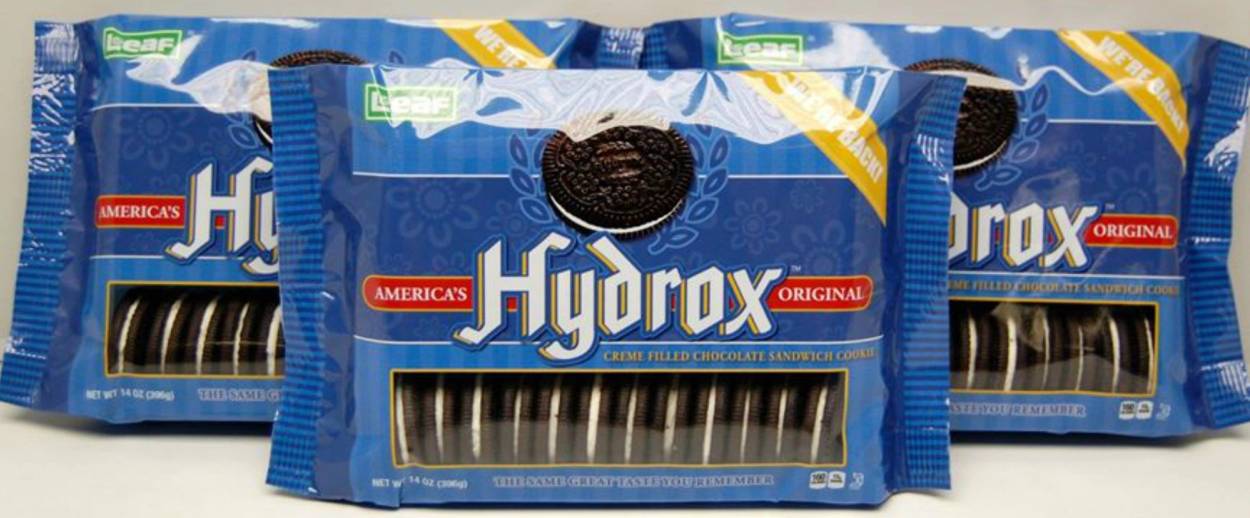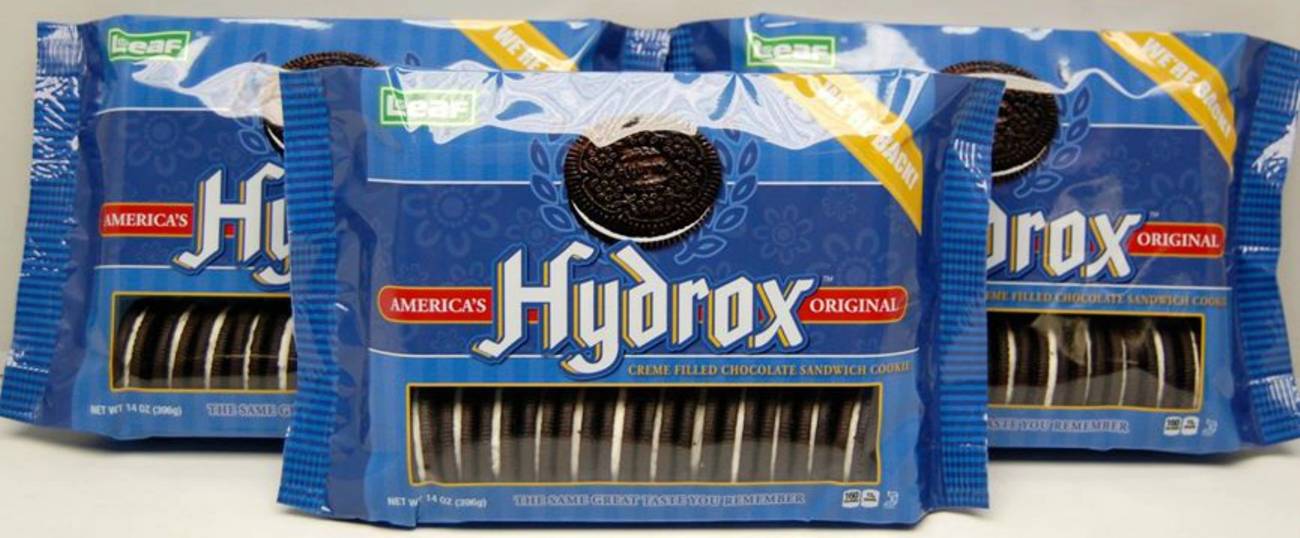The Return of America’s Favorite Kosher Snack Cookie
Hydrox is coming back.




My mother tells the following story about her friend Bob:
Back in the day, Bob loved to eat Oreos. He ate them so often, in fact, that a friend issued him a challenge. It went something like this: You say you love Oreos, but can you even tell the difference between an Oreo and a Hydrox? Yeah? Prove it.
The Hydrox, for those not in the know, was an Oreo knock-off. Except it wasn’t a knock-off, because the Hydrox was actually invented four years before the Oreo, in 1908. But basically, for all intents and purposes, Hydrox was the creme-filled Oreo look-a-like that most people ignored, with one key difference: unlike lard-infused Oreos, Hydrox were kosher.
Anyway, Bob accepted the challenge, and submitted himself to a blind taste test. His friend, feeling sly, took half of a Hydrox and half of an Oreo, and smushed them together to make a single hybrid cookie sandwich. Blindfolded Bob took a bite. “Half Oreo, half Hydrox,” he said. Touche! (Full dislosure: that quote is a historical reconstruction based on reliable sources, and not necessarily verbatim).
Bob may have had an unusually sensitive palate. But his experience calls into question the earnest assurances given to thousands of Jewish youth before 1997–namely, that their Hebrew school Hydrox snack was basically the same as Oreos, so stop complaining and eat them already.
In 1997, to the relief of Jewish parents and children everywhere, Oreos went kosher. (Marjorie Ingall has discussed the transition in Tablet, with thorough notes on the personal and cultural dimensions of the change). In 2003, Hydrox went extinct. While I would like to chalk this up to the power of kosher-keeping consumers, it is not difficult to think of other reasons that the product did not thrive. For one thing, its name sounded like a stain remover, or a Dr. Seuss character, or a kind of small African mammal. For another, it was playing catch-up with a juggernaut.
So what do you do in 2015 with an old, defunct, alternative snack food, with an industrial-age name and strong associations with one’s grandparents?
Bring it back, of course! And feed it to millenials. Production of Hydrox will restart tomorrow in Los Angeles. The product will be marketed to old-timers, but Leaf Brands founder Ellia Kassoff, who’s resurrecting the cookie, told Grub Street that he had a younger audience in mind, too:
“Millennials like original stuff — that’s why they buy craft beer and small-batch products,” Kassoff notes. “People have been posting about Hydrox on Reddit often, and we have nothing to do with it. I even met someone at an airport who saw I had some Hydrox and was like, ‘Hey, that was just on Reddit like two weeks ago.’” Part of the attraction, Kassoff estimates, is that Hydrox is made with “real sugar” and non-hydrogenated oils and will cost roughly the same price as Oreos, but not feel as corporate.
In other words, Hydrox is angling to be the Pabst Blue Ribbon of the cookie aisle (in much the same way that The Onion imagines Applebee’s future). It’s not clear whether nostalgia among Jews will help drive sales. But it’s not hard to imagine Hebrew School classrooms a few weeks hence, with bouncy millennial and Gen-Xer teachers introducing the next generation to snack foods of eras past.
And yes, Hydrox are still kosher.
Related: Unholy Wafers
Previous: Dartmouth Students Protest for Kosher Food
What’s Kosher and Tastes Like Bacon? This Seaweed
Michael Schulson is a freelance writer in Durham, North Carolina. He writes about religion, science, and culture.